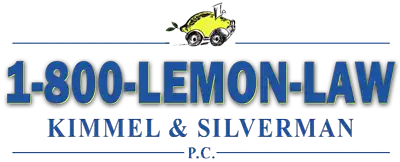Connecticut Lemon Law Overview
The Connecticut Lemon Law provides protections for consumers who purchase or lease new vehicles that fail to meet the manufacturer’s express warranties. If a vehicle exhibits significant defects affecting its use, safety, or value, and these issues persist despite reasonable repair attempts, the consumer may be entitled to a replacement or refund.
Definitions
Consumer
A consumer is defined as:
-
The purchaser (other than for resale) of a new motor vehicle.
-
A lessee of a new motor vehicle.
-
Any person to whom the vehicle is transferred during the duration of an express warranty.
-
Any person entitled by the terms of the warranty to enforce its obligations.
Motor Vehicle
A motor vehicle includes:
-
Passenger motor vehicles.
-
Passenger and commercial motor vehicles.
-
Motorcycles.
These vehicles must be sold or leased in the state to qualify.
Warranty Period and Repair Obligations
If a new motor vehicle does not conform to applicable express warranties, and the consumer reports the issue to the manufacturer, its agent, or authorized dealer within two years from the date of original delivery or before the vehicle reaches 24,000 miles (whichever comes first), the manufacturer or its representative is obligated to make necessary repairs to conform the vehicle to the warranties. This obligation persists even if the repairs occur after the expiration of the specified period.
Notification Requirements
Consumers are not required to notify the manufacturer of a claim unless the manufacturer has clearly stated in the warranty or owner’s manual that written notification is necessary before a refund or replacement can be issued. If such a requirement exists, the manufacturer must provide the name and address to which the consumer should send the notification.
Remedies for Unresolved Defects
If the manufacturer or its agents cannot repair a defect that substantially impairs the vehicle’s use, safety, or value after a reasonable number of attempts, the manufacturer must either:
-
Replace the vehicle with a new one acceptable to the consumer.
-
Accept the return of the vehicle and refund the following amounts to the consumer, lessor, and lienholder (as their interests may appear):
-
The full contract price, including charges for undercoating, dealer preparation, transportation, and installed options.
-
All collateral charges, such as sales tax, license and registration fees, and similar government charges.
-
All finance charges incurred by the consumer after reporting the nonconformity and during any subsequent period when the vehicle is out of service due to repair.
-
All incidental damages, less a reasonable allowance for the consumer’s use of the vehicle.
-
A reasonable allowance for use is calculated by multiplying the total contract price by a fraction, the numerator of which is the number of miles the vehicle traveled before the manufacturer’s acceptance of its return, and the denominator is 120,000.
Presumption of Reasonable Repair Attempts
It is presumed that a reasonable number of attempts have been made to conform the vehicle to the express warranties if:
-
The same nonconformity has been subject to repair four or more times by the manufacturer or its agents within two years of the original delivery date or before 24,000 miles, and the issue persists.
-
The vehicle is out of service due to repair for a cumulative total of 30 or more calendar days during the same period.
Disclosure Requirements for Returned Vehicles
Vehicles returned under these provisions must not be resold, transferred, or leased in the state without clear and conspicuous written disclosure that the vehicle was returned. This disclosure must be affixed to the vehicle and included in any contract for sale or lease.
Manufacturers accepting the return of a vehicle must:
-
Stamp the words “MANUFACTURER BUYBACK-LEMON” on the face of the original title in letters at least one-quarter inch high.
-
Notify the Department of Motor Vehicles, providing relevant information including the year, make, model, vehicle identification number, and prior title number.
Additional Provisions
-
All express and implied warranties arising from the sale of a new motor vehicle are subject to applicable state laws.
-
The rights and remedies provided do not limit those available to a consumer under any other law.
-
If a manufacturer has established an informal dispute settlement procedure certified by the appropriate authority, consumers may be required to utilize this procedure before seeking a refund or replacement.
Dealer and Lessor Obligations
-
Dealers or authorized agents must, upon request, provide consumers with copies of any paperwork or invoices related to repair work performed on the vehicle.
-
At the time of sale or lease, dealers and lessors must deliver to the consumer written information explaining the new automobile warranty and dispute settlement program.
Legal Actions and Attorney’s Fees
In actions brought by consumers against manufacturers, agents, or authorized dealers for breach of warranty, courts may award costs and reasonable attorney’s fees to the prevailing party. If the court determines that the action was brought without substantial justification, it may award costs and reasonable attorney’s fees to the defendant.

